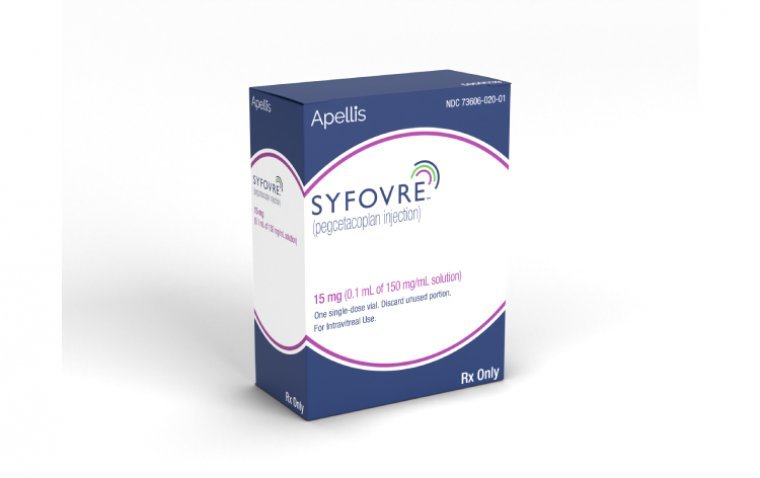
Kiora Pharmaceuticals Receives Funding for Inherited Retinal Disease Trials
Kiora Pharmaceuticals announced that it has secured a grant from the Choroideremia Research Foundation (CRF) to support novel clinical trial endpoints for inherited retinal diseases (IRDs). The grant will fund the validation of the Multiluminence Orientation & Mobility (MLOM™) suite of tests in Kiora's upcoming ABACUS-2 Phase 2 clinical trial targeting KIO-301, a potential treatment for vision restoration in patients with late-stage retinitis pigmentosa.
The MLOM™ tests, developed in partnership with Ora, Inc., are functional vision assessments that emulate real-world tasks and environments. These assessments have been recognized as approvable endpoints in registration/marketing authorization studies by global regulatory bodies.
Collaboration and Validation in Clinical Research
Approval for the clinical validation study was recently granted, with collaborative efforts led by Professor Robert Casson, MBBS (Hons), M.Biostat, DPhil, FRANZCO, a consultant ophthalmologist at the Royal Adelaide Hospital and head of Ophthalmology and Visual Science at Adelaide University. The study aims to refine and validate endpoints that can objectively and reliably measure changes in functional vision, setting a standard for global regulatory approval.
Kathi Wagner, Executive Director of the CRF, expressed optimism about the new developments: "Our patient community is encouraged by the new technologies and treatments under development for Choroideremia and other IRDs. The CRF's contribution under this grant will help ensure appropriate tests are available for all drug developers, providing a clearer path to approvability."
This initiative builds on the findings from Kiora's ABACUS-1 trial and includes extended validation work in Australia. Keith Lane, Vice President, Posterior Segment of Ora, Inc., highlighted the significance of their role in developing therapies: "We are thrilled to play this important role in developing vision restoring therapies and look forward to having the MLOM™ tests front and center for next generation therapies."
Eric Daniels, MD, MBA, Chief Development Officer of Kiora, thanked the CRF for their support: "As we advance KIO-301 through clinical development across multiple IRDs, including choroideremia, input from regulators, physicians, and ultimately patients is essential in shaping the pathway to market for our drug and potentially benefiting the entire community."
Inherited Retinal Diseases (IRDs)
Inherited retinal diseases (IRDs) are a group of genetic disorders that affect the retina and can lead to vision impairment or blindness. Here are some common types of IRDs along with brief explanations:
● Retinitis Pigmentosa (RP): This is a group of genetic disorders that cause the breakdown and loss of cells in the retina. People with RP experience progressive vision loss, starting with decreased night vision and loss of peripheral vision.
● Stargardt Disease: This disease is the most common form of inherited juvenile macular degeneration. It results in progressive vision loss, typically due to the accumulation of lipofuscin in the cells underlying the macula, which damages retinal cells.
● Leber Congenital Amaurosis (LCA): A severe genetic disorder that appears at birth or in the first few months of life, LCA affects the retina's ability to convert light (photons) into visual signals. This condition results in severe vision loss or blindness.
● Choroideremia: This is a rare inherited disorder that causes progressive vision loss due to degeneration of the choroid, retinal pigment epithelium, and photoreceptors.
● Cone-Rod Dystrophies: These are a group of inherited eye disorders that affect the cone and rod cells of the retina, leading to deterioration of central vision and color perception, often accompanied by night blindness.
● Usher Syndrome: This is an inherited condition characterized by partial or total hearing loss and vision loss that worsens over time. The vision loss is due to retinitis pigmentosa, which affects the retina's ability to respond to light.
● Best Disease (Vitelliform Macular Dystrophy): This condition generally begins in childhood and is characterized by the progressive loss of central vision. It involves the build-up of lipofuscin deposits in the macula, the part of the retina responsible for sharp central vision.
● Bardet-Biedl Syndrome: This is a multisystem genetic disorder affecting the retina along with other organs. Vision loss in Bardet-Biedl syndrome is due to retinitis pigmentosa.
(1).jpg)










